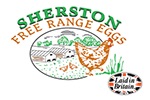The importance of upholding and increasing the nation’s self-sufficiency levels to help bolster food security was highlighted last month.
The call came on the day the national larder would run empty if Brits only ate food produced in the UK from 1 January, which was August 14th. According to 2023 Defra figures, the UK is 62% self-sufficient in food, reflecting a similar level to the past decade.
This year, farmers and growers have experienced one of the wettest winters and springs on record, while high global temperatures have impacted key exporting countries across the world.
With global and climatic instability putting pressure on food systems all over the world, the industry says it wants to to work with the new government to put domestic food production at the centre of its missions around climate resilience, economic growth and the nation’s health.
Food from other countries will always form a proportion of our daily diets, but we must recognise the vulnerability of global food supply chains and the importance of a stable food supply here at home to our nation’s health, as well as its vital contribution to our economy.
That is why investment in Britain’s farming sector is so important, so where we can increase self-sufficiency in homegrown foods, we do.
It is welcome that the government has recognised that food security is critical to national security, but it that must be backed by the right policy framework and investment to boost confidence and resilience.
Central to this is an increased multi-year agriculture budget and a statutory commitment to ensure the UK’s self-sufficiency does not drop below its current level. On this Self-sufficiency Day, we want to highlight the importance of boosting Britain’s ability to produce its own food so families across the country continue to have access to healthy, balanced and affordable meals – something we all have a right to.
As well as the budget increase, the industry wants to ensure all new policies and regulations that impact agricultural and horticultural businesses undergo a food security impact assessment.
It also wants to see the introduction of a statutory commitment to ensure the UK’s self-sufficiency does not drop below its current level, and ensure food imports are produced to the same standards as those that British farmers are required to meet by introducing a system of core standards for animal welfare and environmental impact.
It has called for a seamless transition to new environmental schemes, and the manifesto commitment of introducing a target for half of all food purchased across the public sector to be locally produced or certified to higher environmental standards. It also wants the National Planning Policy Framework (NPPF) to include a weighted argument in favour of food production.








